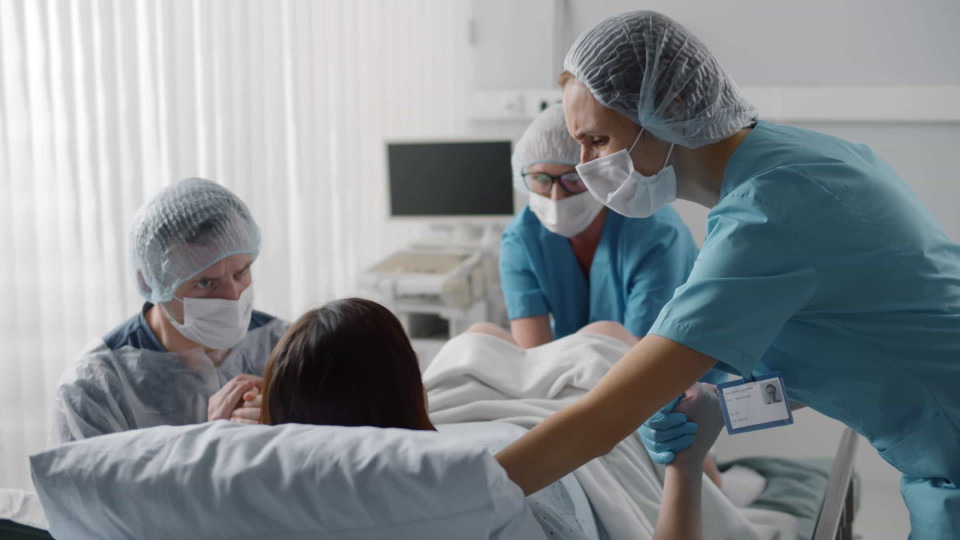Porto participates in a project to make childbirth more physiological and safe
The Faculty of Medicine of the University of Porto (FMUP) is participating in a European virtual and augmented reality technology project to improve the training of nurses in the positioning of pregnant women during childbirth, a researcher revealed today.

© Shutterstock

País Medicina
The project -- which involves professionals from Portugal, Germany and the Czech Republic -- aims to make childbirth more physiological and safe, both for the mother and the baby.
"There are positions that, when adopted by the woman during labor, can positively influence the progression of the process and favor the descent of the baby, in addition to helping in pain management", explained to Lusa the FMUP researcher Carla Sá Couto.
Thus, and after researchers from the University of Munich (LMU), in Germany, identified that there was a gap in the educational context of their maternal and obstetric health nurses, known as nurse midwives, a European project began to be developed that aims to pass on to virtual reality a set of maneuvers and positions that can help mothers and professionals during childbirth.
This project, which in Portugal is led by FMUP, will reach students of postgraduate or master's degrees in maternal obstetric health at the Porto School of Nursing (ESEP) in the second semester of the next academic year.
In practice, students will be able to practice in a virtual environment in order to visualize the anatomical structures of the pregnant woman (pelvis), as well as the fetus, during labor and birth.
Several clinical scenarios will be simulated, allowing students to visualize and identify the most favorable maternal positions for childbirth, which can be, for example, on all fours or squatting.
In a second phase, obstetric simulators will be included, that is, mannequins that imitate a pregnant woman and include a fetus, allied to technology that is seen through virtual reality glasses.
"We believe that this training will contribute to making childbirth more physiological and safer. More physiological, in the sense that interventions are less invasive and allow the woman to have a more participatory role in labor", said Carla Sá Couto.
The teacher considered that "recognizing that these maneuvers are effective gives security so that the clinical decision does not immediately jump to a more invasive manipulation or to a cesarean section", pointing out that future nurses "will now have a mental model that will allow them to build a much easier decision-making process when they have to support women in labor".
The project is funded by Erasmus+ Cooperation Partnerships in Higher Education (KA220-HED) with 400 thousand euros.
The start of the pilot study is scheduled for April 2025.
In total, 45 to 60 students are expected to participate, of which 15 to 20 will be Portuguese.
In addition to the principal investigator, Carla Sá Couto, the researchers Inês Jorge and Abel Nicolau are part of the FMUP team.
In addition to FMUP, LMU and ESEP, the Katholische Stiftungshochschule University of Applied Sciences (KSH) and Masaryk University (MUNI MED) participate in the project.
Leia Também: Equipa multidisciplinar da MAC vai acompanhar grávidas de risco em casa (Portuguese version)

Descarregue a nossa App gratuita.
Oitavo ano consecutivo Escolha do Consumidor para Imprensa Online e eleito o produto do ano 2024.
* Estudo da e Netsonda, nov. e dez. 2023 produtodoano- pt.com



